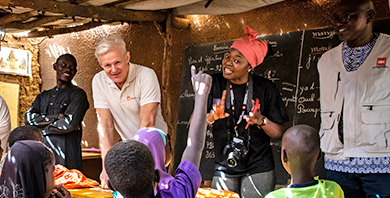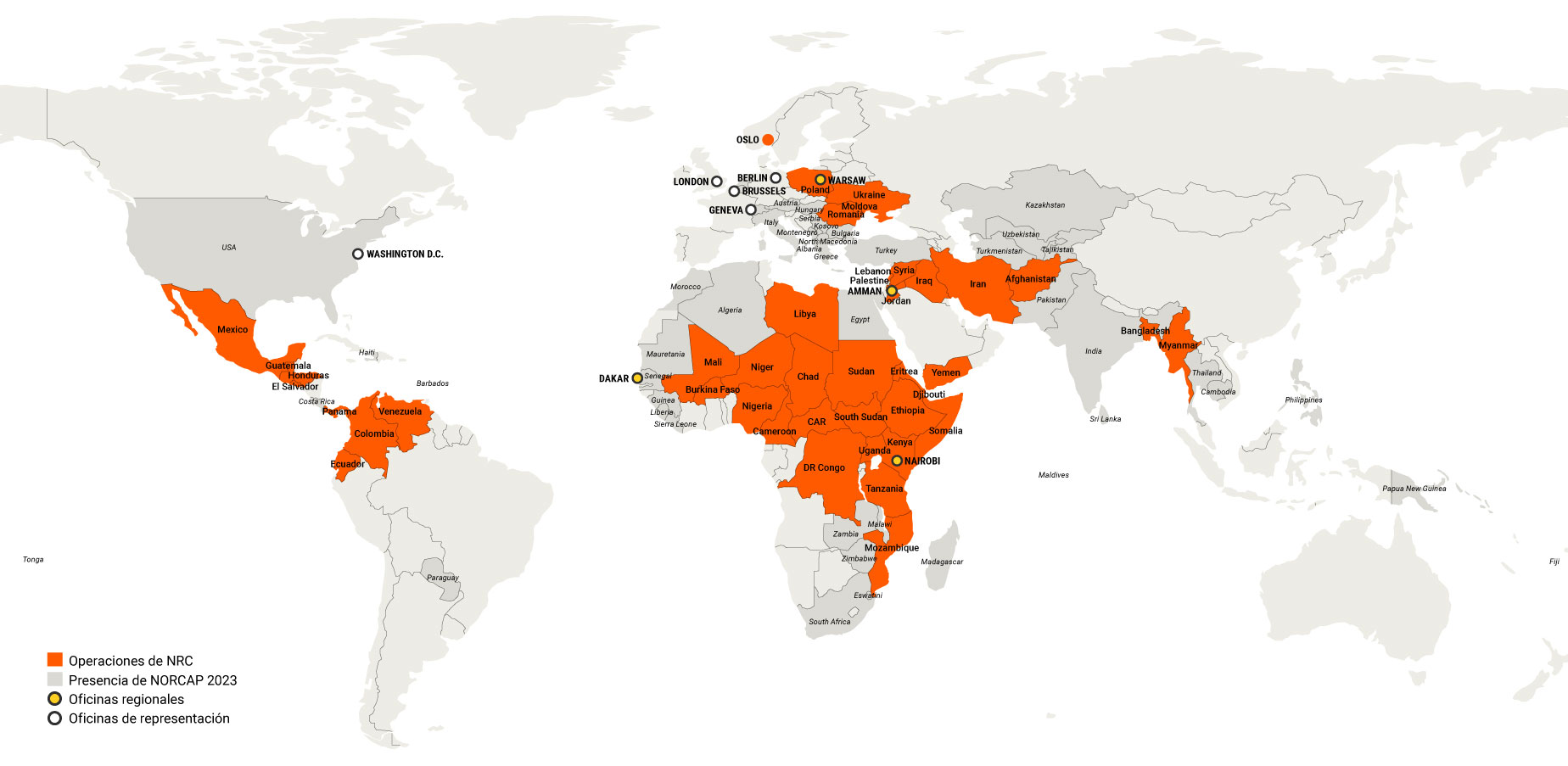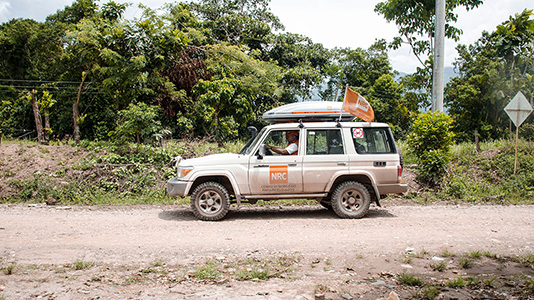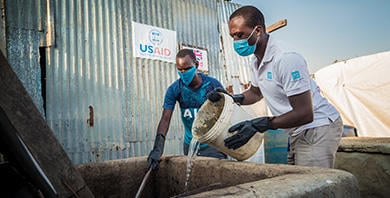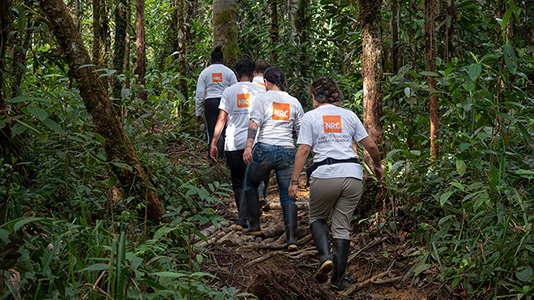 This is a day to remember our fallen colleagues and pay tribute to all aid workers in the field. It is also an opportunity to focus on the need for safe and timely access to people in need, said NRC Secretary General Jan Egeland. “The difficult security situation and lack of impartial access prevents vital relief from reaching millions of Syrians, and truly highlights the relevance of World Humanitarian Day.“ Jan Egeland, Secretary General of the Norwegian Refugee Council. On World Humanitarian Day, Egeland is on field trip to the Middle East to meet the NRC colleagues in the region, as well as refugees and displaced persons from Syria. He will also meet with the representatives of Syria’s neighboring countries that are currently hosting close to two million refugees. More than 329.000 Syrian refugees have received assistance through NRC programs in Lebanon, Iraq and Jordan in the past year. A lot of hard work has gone into this. I look forward to meeting the colleagues who carry out this work on the ground, said Jan Egeland. At the same time he stresses that Syria today represents the extreme challenges humanitarian workers are facing today.
This is a day to remember our fallen colleagues and pay tribute to all aid workers in the field. It is also an opportunity to focus on the need for safe and timely access to people in need, said NRC Secretary General Jan Egeland. “The difficult security situation and lack of impartial access prevents vital relief from reaching millions of Syrians, and truly highlights the relevance of World Humanitarian Day.“ Jan Egeland, Secretary General of the Norwegian Refugee Council. On World Humanitarian Day, Egeland is on field trip to the Middle East to meet the NRC colleagues in the region, as well as refugees and displaced persons from Syria. He will also meet with the representatives of Syria’s neighboring countries that are currently hosting close to two million refugees. More than 329.000 Syrian refugees have received assistance through NRC programs in Lebanon, Iraq and Jordan in the past year. A lot of hard work has gone into this. I look forward to meeting the colleagues who carry out this work on the ground, said Jan Egeland. At the same time he stresses that Syria today represents the extreme challenges humanitarian workers are facing today.
The attacks in Baghdad
19th August 2003 Jan Egeland arrived in New York City to become the new head of the UN’s humanitarian work, as United Nations Undersecretary-General for Humanitarian Affairs and Emergency Relief Coordinator. On the same day a powerful bomb detonated close to the UN headquarters in Baghdad in Iraq. Twenty two aid workers and UN staff where killed in the attack. – World Humanitarian Day was established by the UN in 2009 to commemorate those killed in the Baghdad attack and other aid workers who have lost their lives in humanitarian service. The day is also a tribute to all those who are still in out there the field, providing humanitarian assistance in harsh and often unsafe conditions, said Jan Egeland on the tenth anniversary of the attack in Baghdad.
Global protest
Several of Egeland´s close colleagues were among those killed in Baghdad, including the UN special envoy to Iraq, Sergio Vieira de Mello. Vieira de Mello was also Egeland’s predecessor as Emergency Relief Coordinator. – The way that the UN aproached threat assessment – as an organization and as a workplace – was completely changed in the wake of this attack. It represented a new form of international terrorism – the systematic attack of vulnerable targets that generate the greatest possible international attention, and which will paralyze vital activities. The goal is to create maximum chaos and desperation. Commemoration of World Humanitarian Day is a global protest against such grave breaches of international humanitarian law, said Jan Egeland.
More dangerous
In 2011, Egeland was charged with a major review of the conditions in which humanitarian actors work. The end result was “To Stay and Deliver”, aUnited Nations report which concluded that it has become increasingly dangerous to be an aid worker in humanitarian crises. The study showed that the last decade has been the worst in the UN’s history in terms of numbers of aid workers and UN staff. – It is important that we are constantly working to ensure that humanitarian workers can perform their jobs in the most secure manner. At the same time we must recognize that working in conflict areas will always be associated with a risk. We have to be creative and flexible, and we must always challenge ourselves to better serve/civilians in need of protection and assistance. They are are the ones most affected when the humanitarian system fails.
Joint effort
The successful delivery of humanitarian assistance does not only depend on security. Another basic requirement is funding. – Today the UN and most NGOs are struggle to find adequate funding. The current UN Regional Response Plan for the Syria crisis has been less than 50% funded. The Central African Republic and DR Congo are two more examples of crises where the needs are much greater than the funds available to meet them, said Jan Egeland. This year’s World Humanitarian Day Campaign revolves around the statement, “The world needs more of …”. OCHA’s reasoning is that successful humanitarian work must be a a joint effort to help those in the world who need it the most. – The great thing is that this campaign is not just about words. It allows people to tak action which makes a positive contributionto humanitarian work. We want people to see the connection between themselves and the help that reaches civiliana in war and conflict areas. We, the humanitarian community, know how to do it, but can’t get anywhere if governments, individuals, businesses and other actors are not contributing financially to our work, said NRC´s Secretary General.


